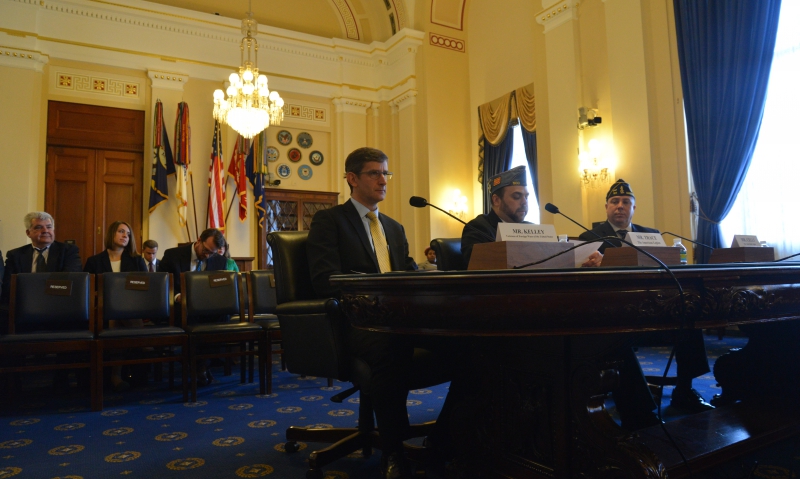
Legion to Congress: Preserve Pershing Hall history, artifacts
Nearly 100 years ago, The American Legion fought for the dedication of a memorial building in Paris, France, to recognize the service and sacrifices of the members of the American Expeditionary Forces and General of the Armies John J. Pershing in 1927. The memorial building was a townhouse in the heart of Paris that would become known as Pershing Hall.
This memorial was authorized by resolution passed at the 1927 American Legion national convention in Paris. Eight years later, in 1935, Congress authorized funds to perpetuate the memorial and transfer the building to the United States government. In 1991, the building was transferred to the Department of Veterans Affairs.
Pershing Hall enabled The American Legion to facilitate a rehabilitation program for American veterans residing in France and extended help to countless Americans – particularly veterans – who became destitute in Europe.
“It has been a refuge for many destitute families, and has been a haven for American orphan children, and has supported for years as high as two hundred orphan children," said Howard Trace, the Legion’s Library and Museum Division director. Trace quoted the Paris Memorial Building Committee Chairman Paul Herbert’s address to the National Executive Committee during the Legion's 1935 Spring Meetings, "It has maintained for years a school for American children in France and has afforded the only opportunity to instruct these children in the English language and the traditions of Americanism."
Trace testified before the House Committee on Veterans’ Affairs Subcommittee on Health Dec. 8 during a hearing that examined pending legislation regarding the use of several properties. The main focus of the director’s testimony centered around Pershing Hall and its historical significance.
“Even today, if you walk down the street in Paris, you can see above the door to this building quite distinctly the emblem of The American Legion marking what once was a center of remembrance of the American sacrifices in the first world war,” he said.
When The American Legion asked the government to pay off and assume control of the building, it was never imagined that the building would be used for any purpose other than as a memorial and space in Paris for those who had served in the First World War and subsequent wars.
Current pending legislation would pave the way for the building to be sold.
"If there are ways that money acquired through the sale of the building would help VA’s much troubled construction fund, then it is a productive use of funds and The American Legion would support the bill," Trace told lawmakers.
While the Legion would support the sale provided that condition is met, The American Legion wants to establish permanent custodianship of the Pershing Hall art, artifacts, furnishings, memorabilia and other items so they can be interpreted for public display and protected from damage or disappearance.
“It is disconcerting and troubling that this site could have drifted so far from its initial intended disposition as a place of remembrance and history," Trace said. "But if it is to have purpose in the future, at least there is some merit in finally ensuring that the history it represents is put in the hands of those who will be careful custodians of the past. This legislation has the potential to help VA meet the infrastructure challenges of the 21st century; however, it must also serve to help preserve the memory of what was fought for and sacrificed for at the dawn of the 20th century.”
Full written testimony from the hearing can be viewed here.
